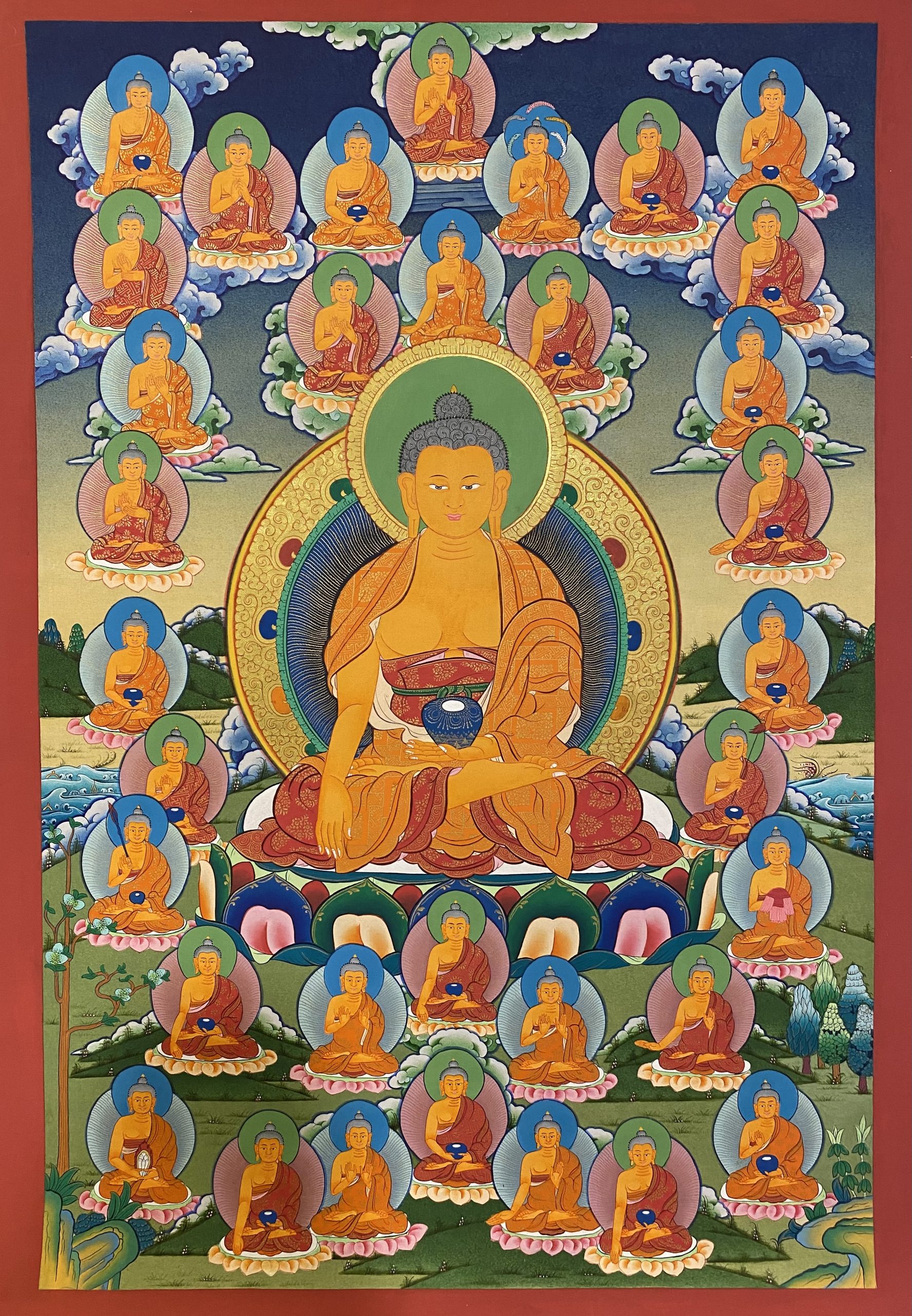
Shakyamuni Buddha, also known as Gautama Buddha, was a spiritual teacher who lived in ancient India and founded Buddhism. He was born in the Shakya tribe in present-day Nepal in the sixth century BCE, and since then, millions of people all around the world have been inspired by his teachings. Siddhartha Gautama, according to Buddhist legend, was protected from the harsh realities of life, but after leaving the confines of his palace, he saw the sorrows of old age, illness, and death.
He was inspired by this encounter to give up his luxurious lifestyle and search for the meaning of life. At the age of 35, after years of diligent spiritual work and meditation, he attained enlightenment. He rose to fame as the Buddha and spent the remainder of his days lecturing to people about his discoveries.
Early Life and the Four Sights
Shakyamuni Buddha was born into a wealthy family in Nepal and lived a sheltered life within the palace walls. At the age of 29, he left the palace grounds and was confronted with the “Four Sights” that changed his life forever. These sightings had a profound effect on Siddhartha, leading him to question the nature of human existence and the purpose of life. He realised that life was marked by suffering, illness, and death, and that these experiences were shared by all humans, regardless of wealth or status. These realisations set Siddhartha on a path of spiritual seeking, seeking to understand the nature of suffering and the path to liberation.
Teachings of Shakyamuni Buddha
Shakyamuni Buddha’s teachings revolve around the idea that all human beings suffer and seek happiness, but our attachments and cravings lead us into a cycle of suffering. The Noble Eightfold Way, which consists of eight practices that lead to the cessation of desire and the achievement of enlightenment, is what the Buddha taught to break this cycle. Right Understanding, Right Intention, Right Speech, Right Action, Right Livelihood, Right Effort, Right Mindfulness, and Right Attention are some examples of these practices.
The Buddha also placed a strong emphasis on the cultivation of mindfulness, which promotes greater self-awareness as well as inner calm and clarity. The Buddha also stressed the value of showing kindness and compassion to all beings, including ourselves. These teachings continue to inspire and direct individuals seeking spiritual development and transformation. They have had a great influence on millions of people all over the world.
The Four Noble Truths and the Noble Eightfold Path
The Four Noble Truths and the Noble Eightfold Path are at the core of the Buddha’s teachings. These are the Four Noble Truths:
Dukkha: The truth of suffering – all beings experience suffering, pain, and unsatisfactoriness in life.
Samudaya: The truth of the cause of suffering – craving and attachment to impermanent things cause suffering.
Nirodha: The truth about the end of suffering is that desire and attachment may be destroyed in order to end suffering.
Magga: The Noble Eightfold Path is the route to enlightenment and the truth of the path to the end of suffering.
The Noble Eightfold Path consists of eight interrelated practices that lead to the cessation of suffering. These are:
Right View: Seeing reality for what it is and recognizing its nature.
Right Intention: Having good intents and motives that are in accordance with the road to freedom
Right Speech: Communicating in a sincere, considerate, and effective manner.
Right Action: Taking the right course of action is acting in a way that is both useful to oneself and others.
Right Livelihood: Earning a life without harming other people
Right Effort: Making an effort to cultivate good attributes and give up bad ones.
Right Mindfulness: Being mindful in the right way is being conscious of one’s thoughts, feelings, and actions in the present.
Right Concentration: Developing deep concentration and focus through meditation.
Mantra of Shakyamuni Buddha
The mantra of Shakyamuni Buddha is “Om Muni Muni Maha muniye Swaha” and is considered one of the most powerful mantras in Buddhism.
The word “Om” is a sacred sound in Hinduism and Buddhism, while “Muni” means “sage” or “wise one,” and “Maha Muniye” means “great sage.” “Swaha” is an expression of dedication or surrender.
Reciting the mantra is said to bring about spiritual transformation and increase wisdom and compassion. It is believed to have a purifying effect on negative karma and can help overcome obstacles on the path towards enlightenment. Some Buddhists also believe that reciting the mantra can bring protection and blessings from the Buddha. Overall, the mantra of Shakyamuni Buddha is a powerful tool for cultivating inner peace, wisdom, and spiritual growth.
Legacy and Impact of Shakyamuni Buddha
Shakyamuni Buddha left behind a large and enduring legacy, and his teachings have had a significant influence on millions of people all across history. He is regarded as one of the greatest spiritual teachers in history, and many different schools of Buddhism have their roots in his teachings.
The world has been profoundly impacted by the Buddha’s teachings, which have influenced social justice movements, literature, art, and philosophy. Several people have been motivated to work toward personal development and spiritual awakening by his teachings on compassion, nonviolence, and the value of leading a mindful life.
Buddhism has spread across the globe, with millions of followers and practitioners in Asia, Europe, North America, and beyond. The teachings of the Buddha have also had a significant impact on various fields of study, including psychology, neuroscience, and cognitive science. Furthermore, the Buddha’s legacy is not limited to his teachings alone. His life story has inspired countless works of art, including sculptures, paintings, and literature, and his image can be found in many temples and homes across the world.
The legacy of Shakyamuni Buddha is proof of the potency of spiritual awakening and the transforming effects it may have on people and society at large. Millions of people are still inspired by and guided by his teachings as they travel the road to freedom and enlightenment.